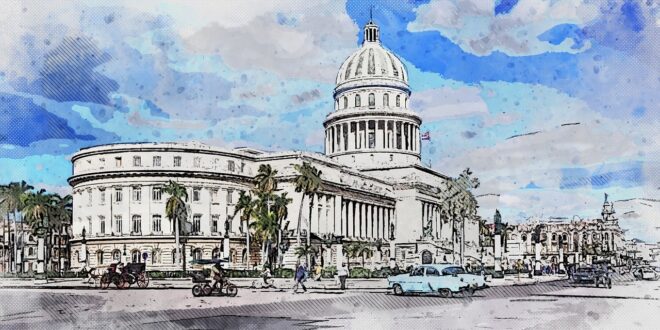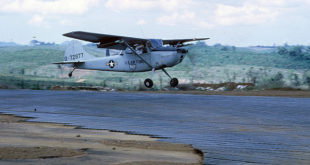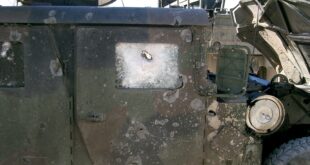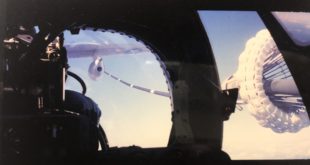by Joshua Garay
Publisher’s note: Here at Soldier of Fortune, we’ve been paying attention to the emerging field of ‘FICINT’ (Fictional Intelligence) as a serious analytic tool. Most FICINT scenarios are set in the future. But what if FICINT also could show alternate history, and underscore what has been at stake in conflict? We asked Joshua Garay, a former U.S. intelligence officer, to imagine a small slice of history, with the world stage being reset when anti-Castro forces invaded the Bay of Pigs in Cuba. Funny thing, Josh said; he had just found an old journal…
From the Journal of Juan Carlos Perez, Matanzas Militia.
1 May 2021
Havana, Cuba
It’s a bright and warm morning in Havana as I look at Freedom Square near Jose Marti International Airport. The white marble statues of Roman and Oliva line the entrance to the colosseum markers that honor the names of the fallen freedom fighters who gave their lives 60 years ago. As I climb the Colosseum steps and look across the skyline of Havana, I am struck by the many glass buildings that have replaced the once iconic Spanish-style structures.
Six decades ago, just four days after Brigade 2506 took the city of Matanzas to the east of Havana, the group had garnered support from local anti-Castro rebels across the region.
A Cuban government in exile was created and recognized by the United States on April 17, 1961. This opened the door for President Nixon to approve aid to support the cause of Cuban freedom. Within hours of approval, the U.S. Air Force more than eliminated Castro’s air fleet, and sneak attacks across the island had destroyed weapons storage caches.
With less than a week on the island, Brigade 2506 had surrounded Havana with three objectives: Take the National Radio Station to communicate with the entire island; remove the threat of Castro’s forces; and capture or kill the Castro brothers.
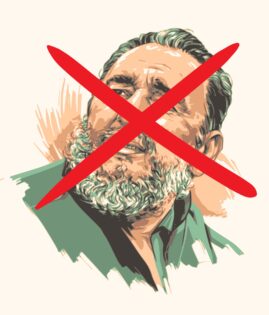
Our goal: Prevent Castro from becoming dictator for life.
Taking the National Radio Station Headquarters would provide a tactical and psychological advantage across the island. Late one warm night, my unit was ordered to approach from the south using a convoy of civilian vehicles, as it offered us the best chance to pass the Castro-ordered checkpoints.
My driver looked nervous, profusely sweating, and holding the steering wheel so hard that the knuckles on his hands grew white through his tan skin. This caught the attention of one of the five guards as we neared the checkpoint.
The guard who approached our lead vehicle must have been a teenager; pimples still dotted his face. Leaning down to the driver’s window, he asked the man for his driver’s license and road pass.
The only response was my commander raising his .45 Colt 1911, and firing a shot into the young man’s head.
Within half of a second, the men in the other vehicles drew weapons, and fired at the remaining four guards. Before the body of the first soldier hit the ground, everyone wearing the Cuban Army olive uniform was dead.
Our driver threw open his door, and ran into an alley.
I could barely process what I had witnessed when my commander grabbed my shoulder, and shoved me into the front seat to drive.
“The job is not done!” he called out as I started the engine and shifted the car into gear, getting us away from the bloody scene.
We sped down the street approaching the National Radio Station.
Over the ringing in my right ear, I could hear the men in the convoy shouting: “Cuba Libre!”
Those who were out on the street either reacted with cheers, or ran back indoors expecting violence to follow. This stalled our arrival at our target but created a significant diversion that masked the mission.
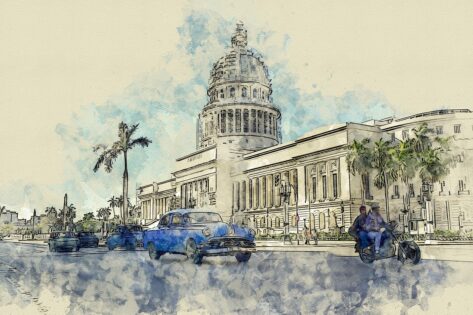
We fought to preserve our beautiful country.
The gates to the National Radio Station were blocked by two U.S. olive drab Jeeps and more than a dozen men.
As the crowds surrounding the convoy advanced past us, we noticed that their chants grew in volume and their fervor increased exponentially.
I stopped and got out of the vehicle. I joined my unit that rushed past the crowd, down the side alley of the station. Shouts came from the front of the station, and grew in anger as the citizens came face to face with the soldiers.
This situation escalated. I jumped over the fence, and was high enough to see rocks being thrown at the soldiers.
Running down the side of the building, we used the concealment of these large palms that lined the walkway leading to a side entrance.
One guard stood watch there but was standing on a chair trying to see what was happening at the front of the station. This would cost him, as I pulled his feet from under him causing him to crash down onto the stone walkway face first. His head hit the ground with the sound of a wet rag, and blood began to pour from his face.
My commander looked at me approvingly as he picked up the soldier’s M3 Submachine Gun, or “Grease Gun” as it was named by most, and passed it to me.
Taking the weapon, I fell in line with the rest of the men as we raced through the floors of the National Radio Station to reach the control room. No additional soldiers walked the halls, but several startled nighttime employees found themselves tied in offices to avoid alerting the guards outside – or additional deaths.
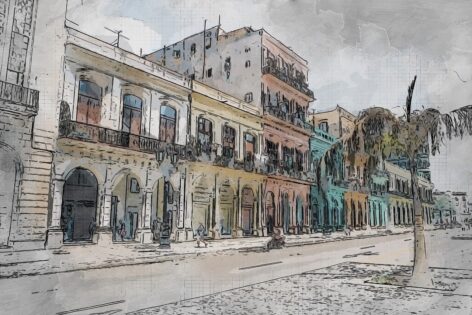
The quiet cells waited to be activated throughout the island.
My commander entered the recording booth. He picked up the microphone, and waited for the green light from the control room. It was the first time in the last few days that he looked nervous. Up until a few years ago, he was just a student in the U.S. state of Pennsylvania who had left school to join the Anti-Communist Foreign Legion of the Caribbean. Now he was about to be responsible for activating cells of Anti-Castro fighters across the island and ending the short reign of a communist dictator.
As the light turned green, the fear and nervousness washed from his face. Resolve generated in his eyes. He spoke into the microphone.
“Patriots of a free Cuba, the time for which we have worked so hard these last few years is at hand,” he said. “This is the end of Castro and his Communist sympathizers. Take your farms back, take your companies back, take your freedom back. Cuba Libre! Now and forever!”
And so it was.
Postscript: Castro and his brothers were arrested and imprisoned. Fidel himself lived to see Cuba thrive and prosper before he died behind bars, a failed dictator.
Joshua Garay is a former U.S. Intelligence Officer with nearly two decades of experience in the fields of security, intelligence collection, crisis management, and organizational strategy development. He currently is a freelance Strategy and Risk Management Advisor to corporate executives.
 Soldier of Fortune Magazine The Journal of Professional Adventurers
Soldier of Fortune Magazine The Journal of Professional Adventurers


